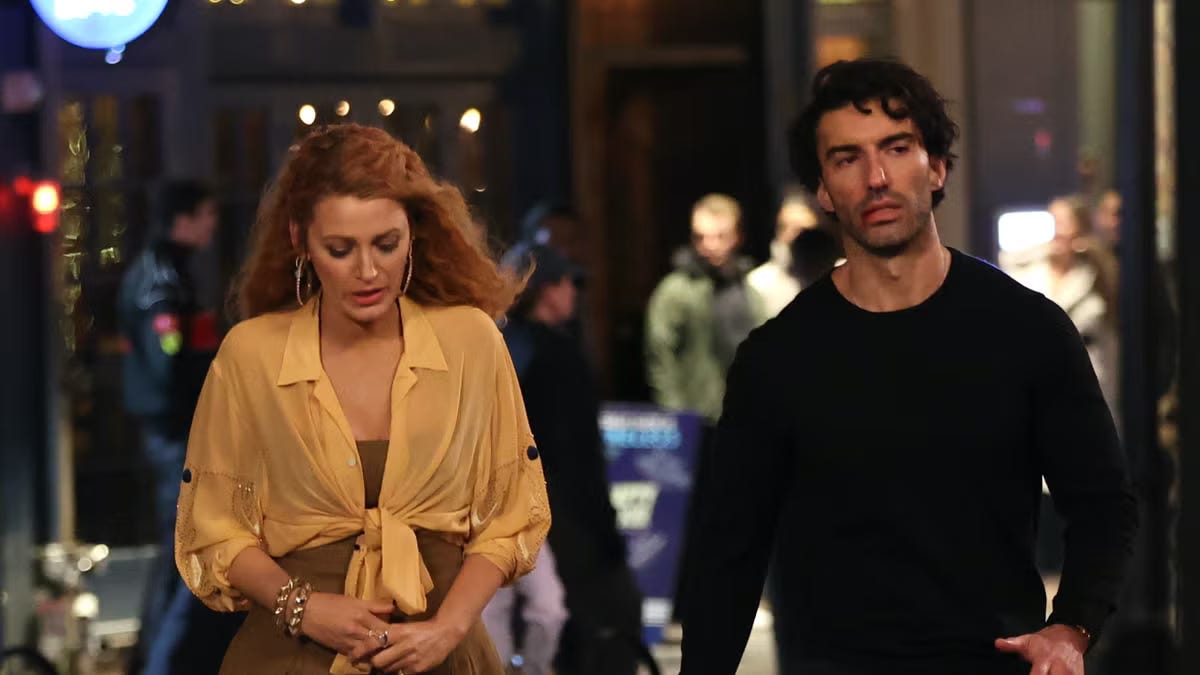Return of the witch trial
No matter the outcome of Lively v. Baldoni, it is women who will end up losing...again
The discourse surrounding the defamation case between Blake Lively and Justin Baldoni has been somewhat dominating my life in recent weeks. Every amendment or altered newspaper article throws me into a flurry of intrigue as we take one step closer to the conclusion. Or, more likely, into even muddier waters. Even when I have tried to avoid it, the case still somehow seeps onto my radar and I am bombarded by more scandalous headlines about these powerful people tearing each other apart in the court of public opinion. The salacious details are enough to keep the internet spinning: celebrity reputations at stake, accusations flying, lawyers posturing. And yet, no matter who emerges the "victor" in this case, it is predetermined who the true losers will be—women.
Beneath the spectacle, the implications of this case are deeply familiar. It’s the same playbook we’ve seen before: a woman speaks, a man retaliates, and suddenly her entire life is up for public dissection. Even when a woman is not the defendant, she is always the defendant. Her character is on trial, her choices scrutinised, her past dragged into evidence. Whether or not the claims against Baldoni are true, the process remains the same—she must prove herself innocent of being unlikeable, difficult, and imperfect.
The pattern is one as old as time. In literature as ancient as Homer’s Odyssey, Circe is portrayed as a villainous seductress rather than a woman using the tools at her disposal to protect herself from an army of uninvited men. In 1692, women in Salem were hanged after being accused of witchcraft, not because of actual crimes, but because they were inconvenient or independent. Or it had just been a bad year for farmers. In 1793, Marie Antoinette, already the subject of relentless misogynistic propaganda, was executed after a sham trial. In the 1950s, the McCarthy era saw women like Dorothy Parker and Lillian Hellman blacklisted for their political beliefs, while their male counterparts often found ways back into public favour. More recently, Britney Spears was vilified for her struggles, Monica Lewinsky was branded a national disgrace, and Amber Heard was turned into an internet punchline. Each time, the public played its role by passing judgment, consuming the spectacle, and moving on to the next.
Meanwhile, the men in these cases, regardless of their actual guilt, are granted a path to redemption. The world will debate whether Baldoni was unfairly accused, whether he deserves the damage done to his career, and how he might rebuild. His story will be framed as a fall from grace rather than a referendum on systemic power. But for Lively, regardless of whether she wins the lawsuit, there is no clean slate. Women accused of lying, exaggerating, or even just being "problematic" don’t get comeback arcs. They morph into cautionary tales.
It is not about defending one party or another but recognising the machinery at work. Defamation suits have increasingly become a weapon wielded against women who challenge powerful men. We saw it with Depp v. Heard, where the trial wasn’t just about two individuals but about reinforcing the cultural message that women should think twice before coming forward. And that message was received, loud and clear. Reports of defamation threats against women alleging abuse have skyrocketed since then. If this case follows the same pattern, the consequences will extend far beyond the courtroom.
The irony is that while these trials frame women as the ultimate deceivers, the legal system itself thrives on illusion. It gives us the fantasy that justice is blind, that the truth will emerge and the "right" party will prevail. But, like most frameworks within our society, justice is informed by wealth, gender, and power. And in this particular spectacle, the public isn't just a passive audience. We are the jury, the commentators, and the enforcers of a verdict that will linger long after any legal one is reached.
So, no matter who wins this case, the machinery will keep turning. Another trial will come along. Another woman’s reputation will be picked apart. Another man’s redemption arc will be drafted before the ink on his verdict is dry. And we will all be expected to play our part by clicking, debating, and consuming, while the system ensures true victims remain too frightened to speak up. After all, we are still taught to be frightened of witches—rather than the men who burned them alive.







"It gives us the fantasy that justice is blind, that the truth will emerge and the "right" party will prevail."
This hits hard, and is so true. No disrespect to Rev. Martin Luther King, Jr., but it feels like his quote, "The arc of the moral universe is long, but it bends toward justice" should have a caveat that reads, "unless you are a woman or member of a marginalized group."
Well said. Written and read.
So sad that this is true.
I know personally how long I stayed quiet.